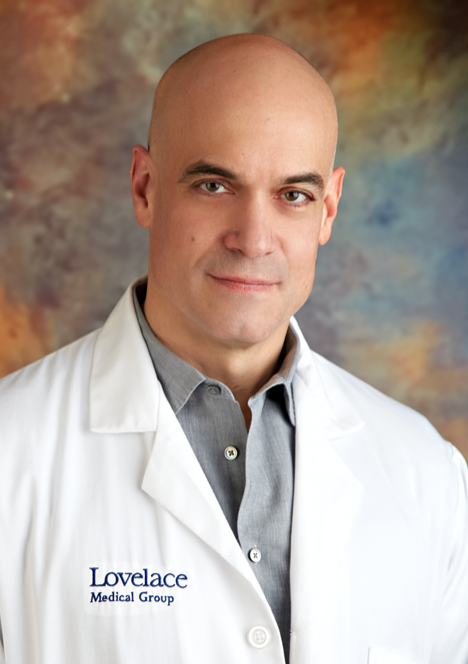Prostate Cancer Support Association of New Mexico Presents its 2020 Annual (Virtual) Conference, "Your Path"
“Registration is easy. Simply to go www.pcsanm.org and click “Register for the Conference.” A replay of the entire two-day conference also will be available on the support group’s website.”
Copied from Prostate Cancer Support Association of New Mexico:
This year’s Prostate Cancer Support Association of New Mexico (PCSANM) free state- wide conference will have a look and feel different from the previous eight.
With simply “Your Path” as its theme, it will be virtual via Zoom Webinar on Nov. 7 and 14, from 9 a.m.-12 p.m. each day. Registration is easy. Simply to go www.pcsanm.org and click “Register for the Conference.” A replay of the entire two-day conference also will be available on the support group’s website.
“We’ve designed an agenda geared to simultaneously attract two distinct audiences,” said Lou Reimer, PCSANM board member. “First, we focus on men and women who want to learn about the options for prostate cancer diagnosis and treatment. But also, physicians, nurse practitioners, and physician assistants serving in remote practices throughout our large and very rural state,” said Reimer. “An advantage of having a virtual, Zoom-based conference is that people who want to attend and learn can do so from the comfort of their homes, and people from around the country are able to attend,” Reimer said.
The Nov. 7 presentations:
Jerome Baca, PA-C, Lovelace Urology Group: Topics of importance for primary- care-level professionals, such as the PSA blood test, digital rectal exam, family history, ethnicity, age, and when a biopsy should be performed. The talk also will note the early detection guidelines of the American Urological Association and the National Comprehensive Cancer Network (nccn.org)
Dr. Larry Massie, Chief of Pathology at the Raymond G. Murphy VA Hospital: A talk about the sometimes confusing, evolving terminology and guidelines for interpreting results of a prostate biopsy in determining severity of newly diagnosed prostate cancer.
Dr. Satyan Shah, Urologist at UNM Hospital and Comprehensive Cancer Center: A comprehensive exploration of the grade levels of risk based upon screening and testing and the treatments appropriate to each level.
Jerome Baca, PA-C, Lovelace Urology Group
Dr. Larry Massie, Chief of Pathology at the Raymond G. Murphy VA Hospital
Dr. Satyan Shah, Urologist at UNM Hospital and Comprehensive Cancer Center
The Nov. 14 presentations:
Dr. Aaron Geswaldo, Lovelace Urology Group: Explanations about why treatments such as active surveillance are preferred for lower-grade cancer and why other groups of treatment are more logical and favorable for higher-grade disease.
Dr. Thomas Schroeder, Radiation Oncologist at UNM Comprehensive Cancer Center: Thorough details about surgery, radiation, and oncological approaches to treatment, including how and when combinations are recommended.
Dr. Barbara McAneny, founder of the New Mexico Cancer Center and former president of the American Medical Association: New Mexico physicians’ efforts to increase medical coverage in the state’s remote areas.
Dr. Aaron Geswaldo, Lovelace Urology Group
Dr. Thomas Schroeder, Radiation Oncologist at UNM Comprehensive Cancer Center
Dr. Barbara McAneny, founder of the New Mexico Cancer Center and former president of the American Medical Association
Kathryn Lopez, PCSANM board member
“The other C word… Caregiving” Kathryn Lopez, one of two women on the Prostate Cancer Support Association of New Mexico board, brings an important credential to that body – caregiver to a person with cancer. “Caring for a loved one with cancer is a special role and no small feat,” Lopez said, “as you try to do the best you can to make it better for them, while dealing with your own feelings. “If you are a female navigating a man’s prostate cancer,” Lopez said, “their diagnosis may feel extra foreign. I, as one who cared for my father, understand we may feel ill-equipped to truly comprehend what the special man in our lives is going through. With that, the best way to be an advocate and caregiver is to learn as much as possible, from the experts. “This is why opportunities like our upcoming conference are so important. I recommend all caregivers engage in this way, so that not only can you discuss and process it with your loved one, but you may also feel more empowered as you continue to walk on their path with them,” Lopez said.








